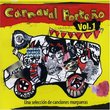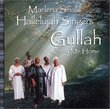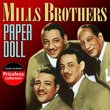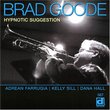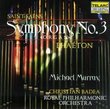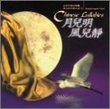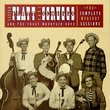| All Artists: Johann Sebastian Bach, Rinaldo Alessandrini, Concerto Italiano Title: Bach: The Art of Fugue; Keyboard Concertos Members Wishing: 1 Total Copies: 0 Label: Opus 111 Original Release Date: 1/1/2003 Re-Release Date: 9/23/2003 Genre: Classical Styles: Chamber Music, Forms & Genres, Concertos, Improvisation, Historical Periods, Baroque (c.1600-1750), Classical (c.1770-1830) Number of Discs: 2 SwapaCD Credits: 2 UPC: 709861200115 |
Search - Johann Sebastian Bach, Rinaldo Alessandrini, Concerto Italiano :: Bach: The Art of Fugue; Keyboard Concertos
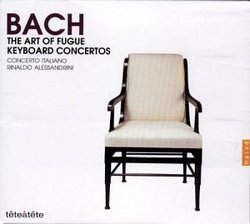 | Johann Sebastian Bach, Rinaldo Alessandrini, Concerto Italiano Bach: The Art of Fugue; Keyboard Concertos Genre: Classical |
Larger Image |
CD DetailsSimilar CDs
Similarly Requested CDs |
CD ReviewsAn Embarassment of Riches Sator | Sydney, Australia | 12/24/2005 (5 out of 5 stars) "Rinaldo Alessandrini has established himself first and formost as a masterly interpreter of Italian Early Music - especially so as a Monteverdian. So his forray into the world of German Baroque is a move that was always bound to infuse something fresh and exciting into this repetoire, especially given the heavy Italian influence that the German composers of this time clearly demonstrate. The performances here live up to - and surpass - all expectations. In fact the interpretation here of 'die Kunst der Fuge' (or should I say L'Arte della Fuga!) is perhaps the finest I have heard. The work is mostly performed for a chamber ensemble of Baroque instruments thought some pieces are played for harpsichord alone by Alessandrini. So this recording of Bach's ultimate work - the concluding chapter of his Klavierübungen, and Encyclopedia of Music - is an absolute must for all Bach lovers. As for the second CD, at this price to have these thrown in is an embarassment of riches. The performances have wonderful vigor, and zest in abundance. Tempi, and phrasing have that rare sense of absolute rightness about them. The recording sound quality both here and in the Kunst der Fuge is well up to the audiophile grade quality that you tend to take from granted from Opus 111. A stupendous buy even if the liner notes are close to non-existent." This recording of these Keyboard Concertos is tops J. Burton | 02/15/2005 (5 out of 5 stars) "Rinaldo Alessandrini plays the harpsichord in a recording of The Art of Fugue by Johann Sebastian Bach (1685-1750). He also directs Concerto Italiano, a period-instrument orchestra, in four of Bach's keyboard concertos. "Here's a collection of almost frantically intense Bach harpsichord concertos--a form that the big guy himself invented. The Concerto in D Minor, BWV 1052, is generally--and for good reason--regarded to be the finest single work of its time before Mozart. It's a grand, emotionally draining piece in three relentlessly grim movements. The other pieces on this disc are a little more relaxed, which is most welcome, since the performers really do push the music about as far as it will go in terms of energy and drive." (David Hurwitz, Amazon.com) The works on this recording: DISC ONE 1. The Art of Fugue, BWV 1080 DISC TWO 1. Keyboard Concerto in D minor, BWV 1052 2. Keyboard Concerto in F major, BWV 1057 3. Keyboard Concerto in D major, BWV 1054 4. Keyboard Concerto in A minor, BWV 1044" Pure Bach T. R. Wilson | 03/15/2008 (5 out of 5 stars) "First, let me say that Josquin's review says already what I would begin to say. I agree entirely with his opinion. To continue:
The Art of the Fugue was probably, among so many works of immense greatness, Bach's ultimate. What is somewhat, if not, altogether, frequent, for Bach, is that he did not specify any particular media, instrumentation, for this work. It is pure music in every sense. What this perforances brings to the music is that, the director, obviously, has given, who knows how many long, difficult hours, to study and determine the instrumentation for the genuis-beyond-genuis, in the variety that Bach brings to the exploration of his original theme. Or, perhaps it all appeared easily to Alessandrini. I wouldnt' doubt that, as the music as played under his hands, that could be the case. I think of Heidegger's theory of "authenticity." This performance, to me, has not one note that strays from a voice of authenticity. THis is not something I can defend entirely with academic rhetoric. This impression derives from my response. But let it be known, I am a serious student of Bach, studying, literally since I was three years old, the Master's work. I have played most of the WTC, the suites and partitas, as well as a huge volume of the organ works. This recording reaches all the heights and plummets the depths of this impossible music. FOr "pure" music is not written with the limitations of instrumentation or the limits of performers in mind. Those who dare take on such works and perform them best, combine the qualities of courage, humility, and most of all the willingness to work, work, work to achieve, what may never, to them, be fully satisfactory, as such music just doesn't have an end in terms of mastery. This is a work of art that transcends even its medium of music. It is a masterpiece of architecture, a work that is also a spiritual experience. But that is not easily understood. I require the score, and much analysis, before even beginning to listen, and then, over and again, I listen, study, more and more, and gain with every effort. Alessandrini has made the best of any recording I've heard of this work. His choice of instrumention alone, is genuis. The first fugue, reminds me of Schweitzer's desription, forgive I don't remember it verbatim, but he said something to the effect that the Affeckt of this music is of a barren landscape, no color, almost a blank canvas, yet so rich... Alessandrini captures this fully, and then takes us from that point of this blank, colorless landscape and then colors, gradually, the various permutations and variations and manifestations of the theme of the fugue; the canons, forget appreciating them fully without you study the scores and know that, as they sound much simpler in their two voices, they are the most complex and brilliant, compositionally, in their adherence to the absolute laws of canon. And Alessandrini doesn't let down one note in this beautiful renderings of these exquisite works. Tecnically, he is obviuosly masterful, but more importantly, musically, he offers the very heart and soul of Bach, within the rigid framework of the canon, never do I feel that the very heart of Bach in all its fullness, is present. Maestro Alessandrini, grazia! Order the score ( the Dover will do complete justice to the work, and you also get within it, the Musical Offering) when you order the recording, and look forward to one of the great journeys in life, that will continue forever; the only other work that I can say is so rich, is the great Missa Solemnis of Beethoven. Maestro Alessandrini, thank you from the depths of my life. I'm housebound much of the time with a disabilty, but I lack nothing, as I have your wonderful work to give the hours more meaning than so many people rushing around in the world. Being admitted to your world, which is, I'm sure, the world of Bach, what a joy, I feel I know you on a much deeper level than I might know the people physically in my presence, such is your greatness in your deep dedication to bring this impossible work into the world of the possible, that we may comprehend it, or at least begin to do so, and then continue, forever, to gain insight and meaning to our lives, just by listening to your interpretation. Enjoy, also those who may find it, the DVD of Glenn GOuld's Russian Tour, where he dared perform the "Art", a most daring choice, both musically and politically at the time it was done. I deeply appreciate anyone who has time to respond to my attempt at reviewing this recording, please be in touch, espcially if you have a very diffent perspective, or can recommend other recordings. I ain't done with the Art of the Fugue, don't reckon I ever will be! Hope not, cause that would mean, to me, I must be dead." |

